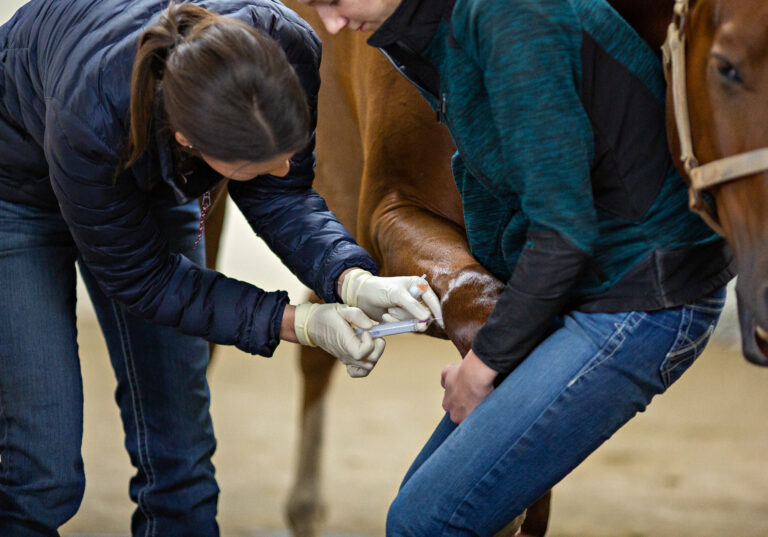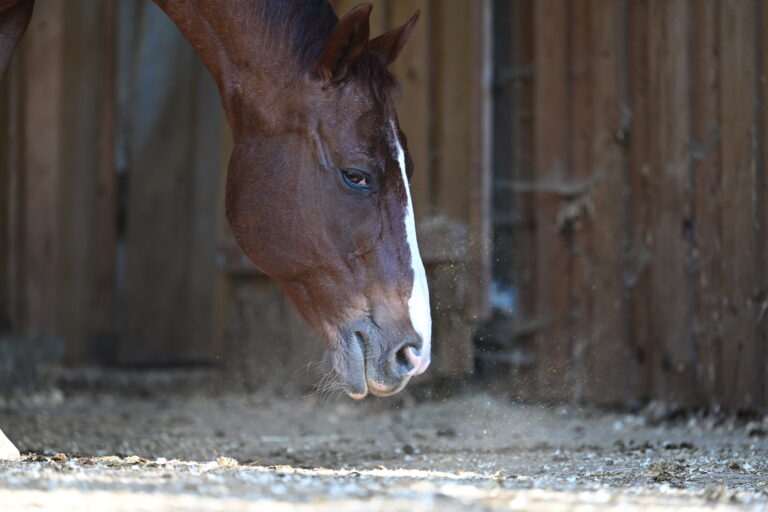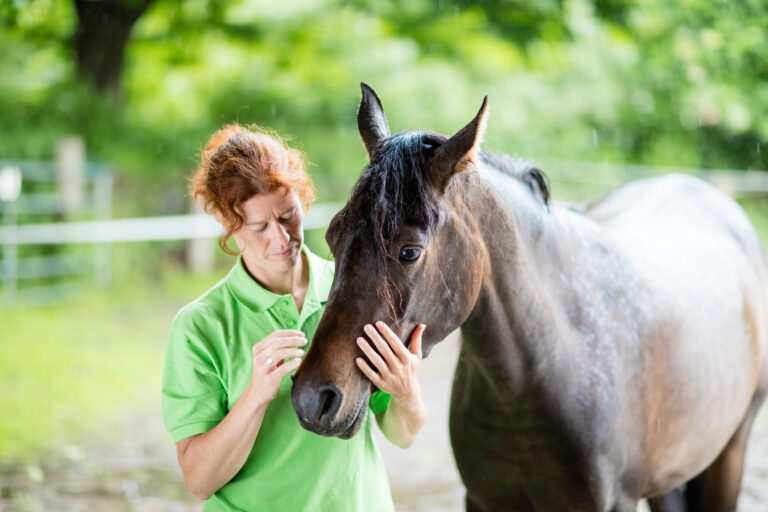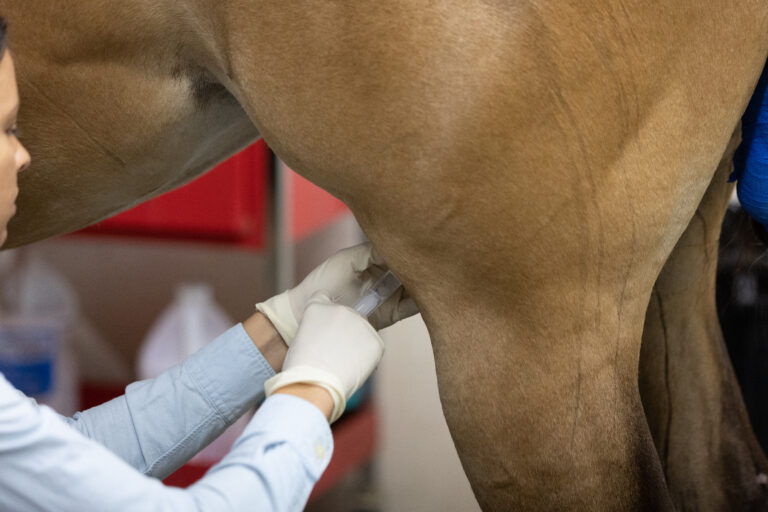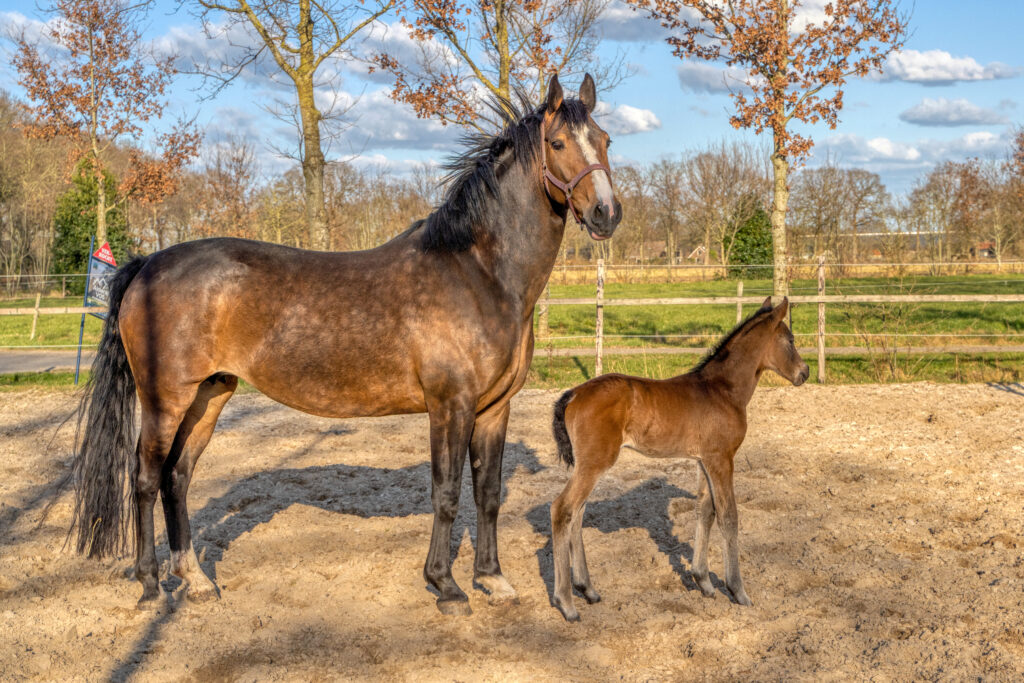
Ovum pickup (OPU) has become more commonplace within the equine breeding industry, leading to a surplus of cryopreserved embryos in waiting, said Jennifer Hatzel, DVM, MS, DACT, of Colorado State University’s Equine Reproduction Laboratory.
What Is OPU?
During a Burst session at the 2024 American Association of Equine Practitioners Convention, Hatzel explained that OPU is an assisted reproductive technique whereby the veterinarian places a transvaginal ultrasound probe into the vaginal vault and an arm in the rectum to position the ovary adjacent to the ultrasound imaging transducer. A 12-gauge double lumen needle is then directed into each visible follicle to collect the oocytes. Those oocytes are transported to the laboratory and used for intracytoplasmic sperm injection (ICSI).
Why Do Horse Owners Select OPU and ICSI?
Why do owners seek out OPU and ICSI? Hatzel listed several reasons, including:
- Wanting one last foal from a particular mare. These mares can often present with advanced age, anatomic issues, possibly recurrent bacterial endometritis, or metabolic and/or orthopedic conditions.
- Waiting until the mare finishes her showing career. These are typically older maiden mares 16 to 18 years of age that might have had several failed embryo transfer attempts and generally have a “tight” reproductive tract and a nondynamic cervix.
- The desired stallion has limited stores of frozen semen.
- To bank embryos for transfer at a later date.
Potential Complications Associated With OPU in Horses
Before jumping to OPU, Hatzel urged veterinarians to consider the mare’s welfare and educate clients so they can participate in shared decision-making.
“These are not benign procedures at all,” said Hatzel.
Complications can and do occur, sometimes necessitating hospitalization. Examples of complications include pain, bleeding, vaginal and rectal tears, peritonitis, arterial puncture, and even death. Hatzel said younger mares or those in competition might have a higher risk of complications following OPU, and she does not recommend returning them to work right away.
Final Thoughts
“Assisted reproductive techniques are extremely valuable, I think, when used on the right population of mares. But it’s not a benign procedure, and it’s important for us as veterinarians to educate our clients and let them know and really establish those expectations up front,” concluded Hatzel.
Related Reading
- Disease Du Jour: OPU and ICSI in Horses
- Factors Affecting Pregnancy Rates in Mares Bred With Frozen Semen
- UC Davis First to Produce Equine Embryos by In Vitro Fertilization With Frozen Sperm
Stay in the know! Sign up for EquiManagement’s FREE weekly newsletters to get the latest equine research, disease alerts, and vet practice updates delivered straight to your inbox.

